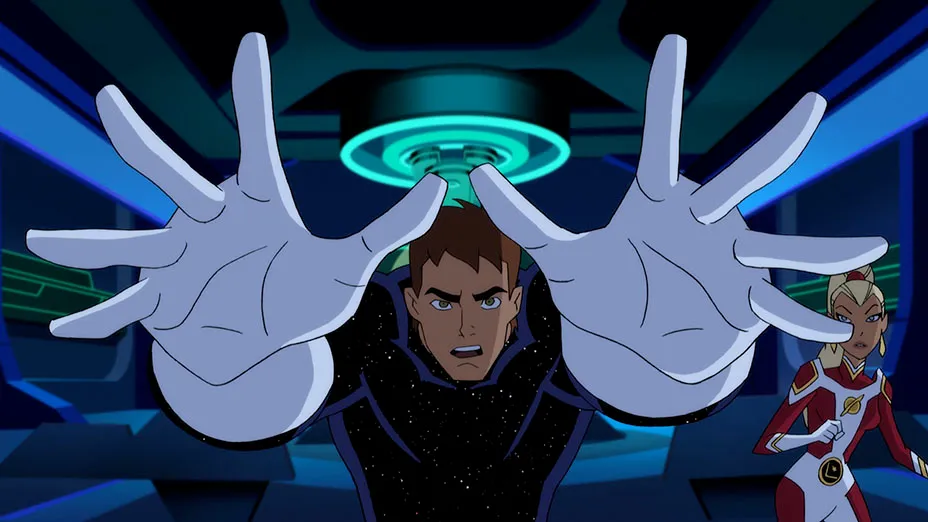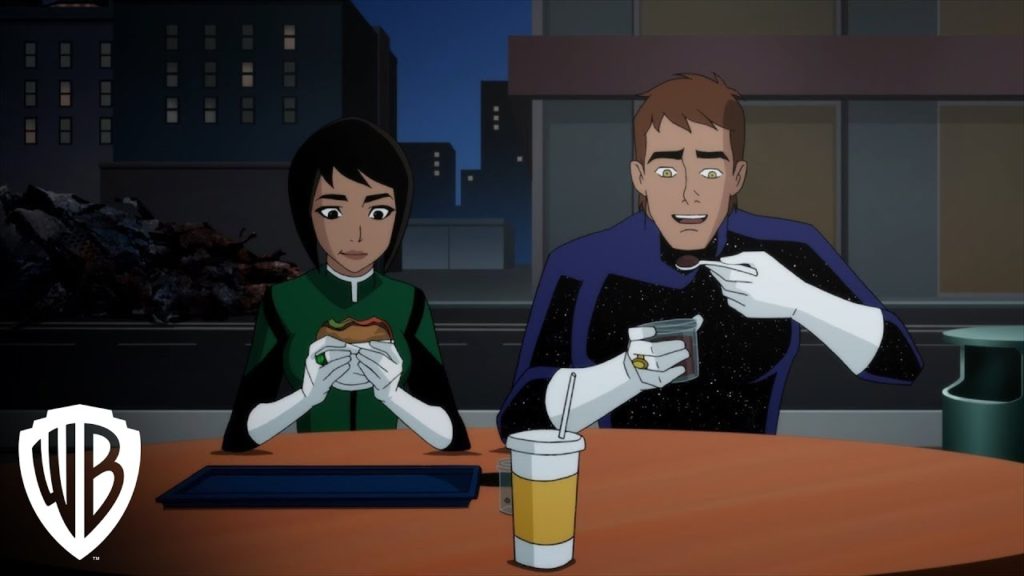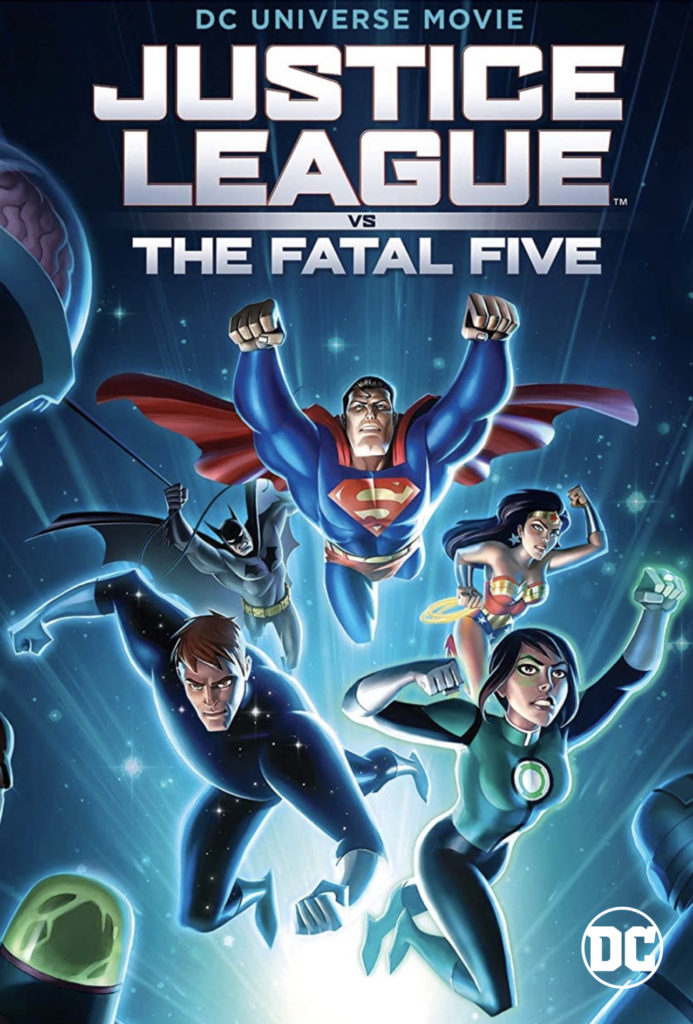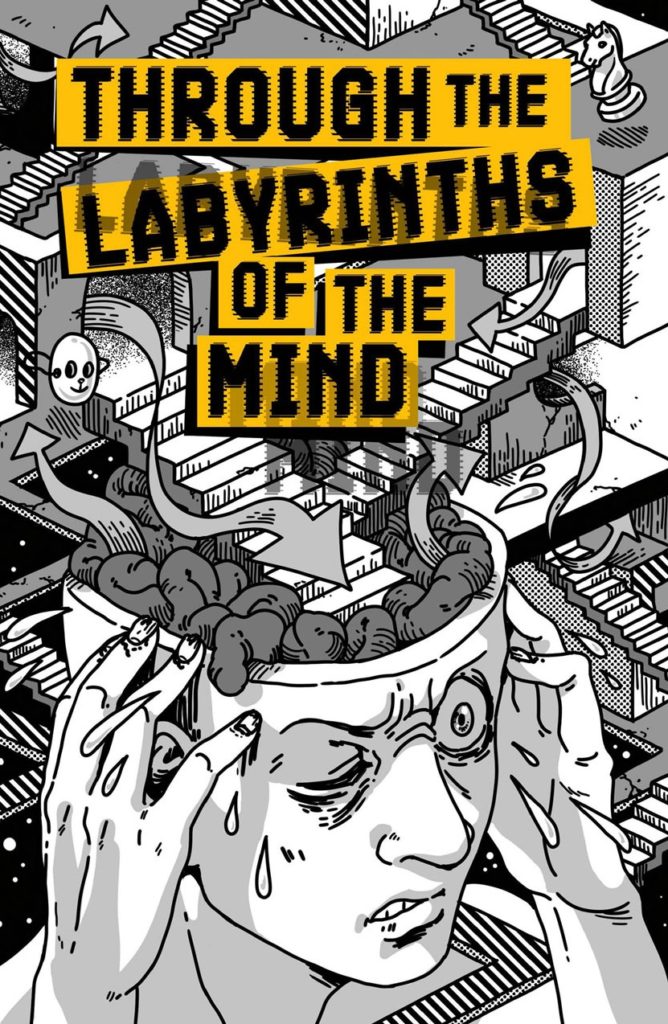I have struggled with depression and anxiety my entire life. When things got stressful, the Beast would rear and bury its claws into my back. It would rake, and I would howl, and I’d try to fight against it, and often fail. So much of my life has been defined by my mental health issues, and I’ve known that I need to overcome them, but for a very long time they weren’t things I talked about. They seemed like personal failures I needed to hide. I couldn’t look vulnerable. I couldn’t look weak. I needed to be strong. As I was trying to hide these issues, I didn’t search for such topics in the stories I consumed, and I certainly didn’t put them in the stories that I wrote. I just wanted to pretend they didn’t exist.
That all changed in the spring of 2019, when I watched the DC animated movie Justice League vs the Fatal Five. In this movie, a team of time-traveling supervillains called the Fatal Five arrive from the future to change history so that their enemies, the Legion of Superheroes, will never be born. They are pursued to our time by the superhero Star Boy, but his schizophrenia makes him unable to clearly explain his mission to Superman, Batman, and the rest of the Justice League. The only member of the League who can understand him is the Green Lantern Jessica Cruz, because her crippling anxiety helps her relate to Star Boy’s own mental struggle. The empathy and support that the two heroes provide each other give them the strength to confront their own issues, fight the supervillains together, and ultimately save the day.
Watching this movie was a shock to my brain. Here were heroes struggling with mental issues in ways I’d never seen on screen before. Here were heroes who knew what it was like to feel trapped inside their head, to have their brain refuse to obey them, to be torn apart by inner demons. They know what it’s like to freak out in front of people and have them not understand what’s going on. They know what it’s like to feel weak and pathetic and alone, despite having nothing wrong with their body. They know what it is like to be me.

I’m a shy, white, middle-class North American male, the stereotypical target audience of comic book superheroes. But in that moment, watching Fatal Five, I realized a part of myself hadn’t previously been targeted by the genre. I felt seen, and in feeling seen I realized to my shock that I hadn’t felt seen before. Perhaps if the movie was another kind of genre, it wouldn’t have affected me so intensely, but this was superheroes, a genre I’d been obsessed with since childhood. In fact, this was a superhero movie done in the same animation style as Bruce Timm’s Batman the Animated Series, one of the most influential shows of my childhood. These were the sorts of heroes I had grown up with, had seen as archetypes of strength and courage. But now I saw that they suffer like me. Their minds betray them like mine. They are like me. But that doesn’t stop them from being heroes and saving the world. As I watched Fatal Five, I broke down and cried.

Thanks to this movie, 2019 was the year that I learned to think more deeply about my mental health issues, the year I learned to speak publicly about them. It was the year that I realized that art could speak to my condition, and when it does, it can be powerful. That when art speaks to me about my mental condition, I feel heard. I no longer feel alone. And when that happens, I can make positive changes in my own life.
It was Justice League vs the Fatal Five that inspired me to consciously write about mental health, to make that my artistic goal. My next big project was to create Through the Labyrinths of the Mind, a graphic novel anthology in which numerous cartoonists created stories inspired by their own experiences with mental health issues such as depression, anxiety, ADHD, and PTSD. I myself wrote an adaptation of the Welsh legend “Geraint, Son of Erbin,” the story of an Arthurian knight who succumbs to crippling depression. In writing about the vulnerability of a hero from my own cultural heritage, I sought to echo the vulnerability of the superheroes that Fatal Five had shown me onscreen. I wanted to show that even the strongest, bravest people suffer inside their minds, and so it’s okay when we do.
Now most of what I write is related to mental health issues in some way. My protagonists wrestle with similar demons to what I wrestle with, and I think hard about how to present those struggles in a potent and insightful way. Before Justice League vs the Fatal Five, I just wrote what I wanted without thinking about how my unique experiences and thoughts could help people. Now I know that when I write about mental health, I can connect to people who wrestle with their own issues. By having my heroes struggle inside their heads, I can inspire my readers in the same way that Fatal Five inspired me. I can make them feel seen, and encourage them to accept themselves. No other movie or book has transformed me as much as this one did.


